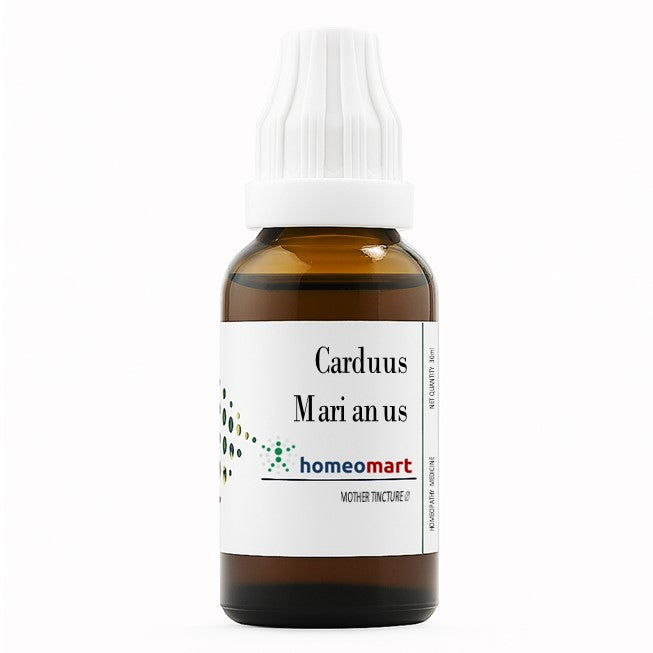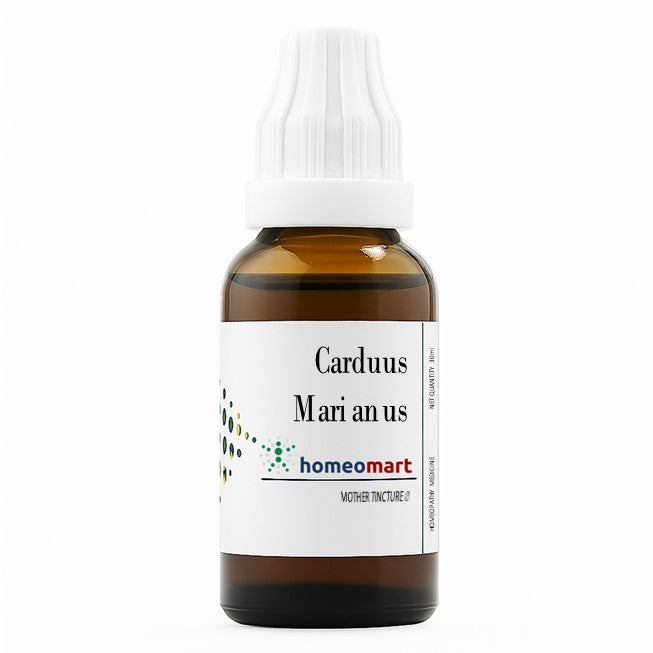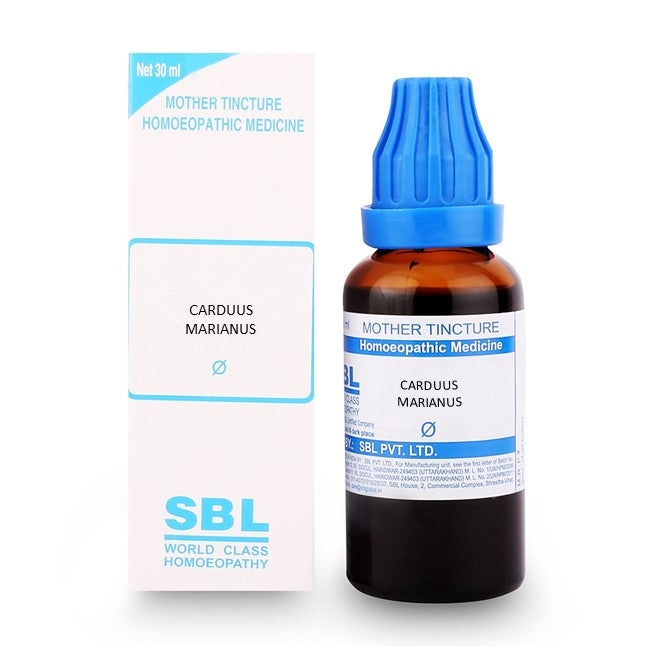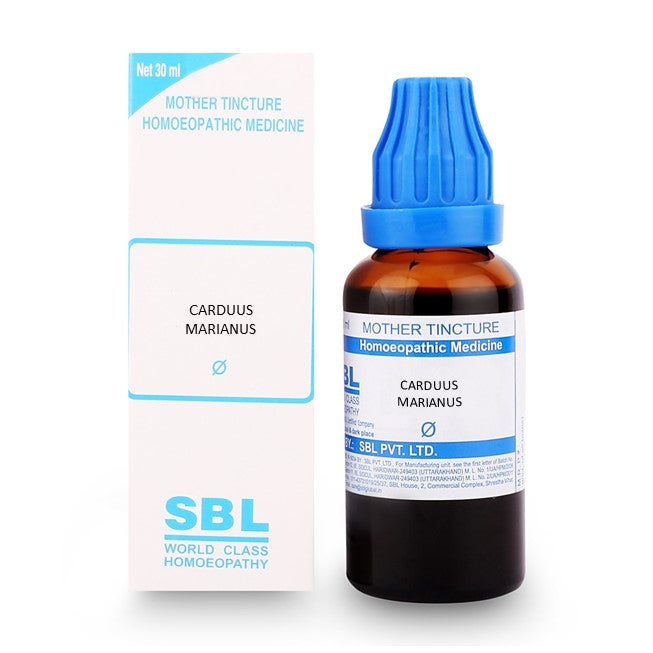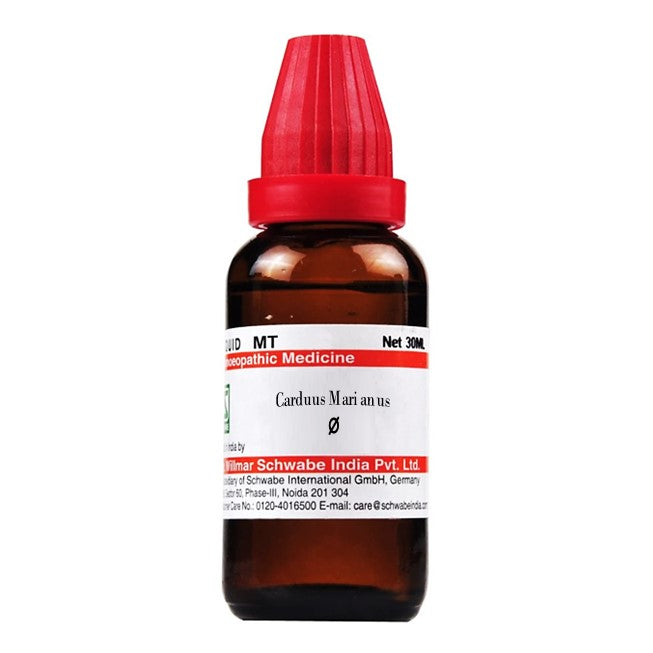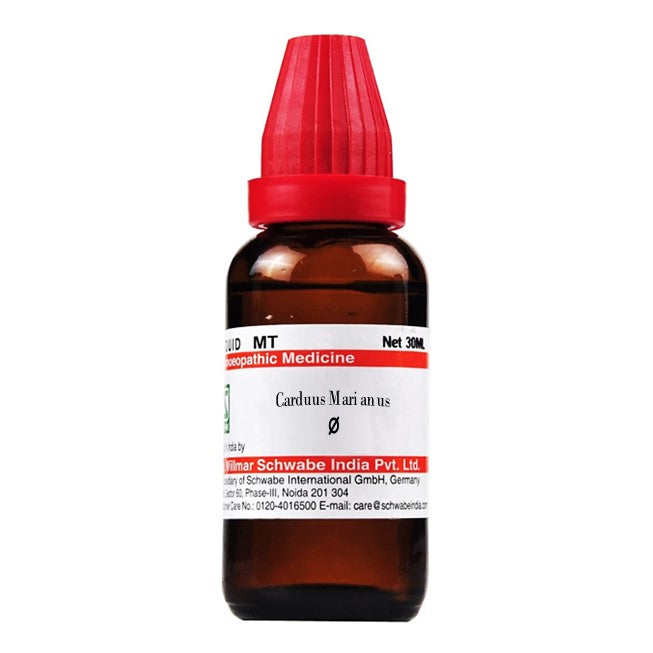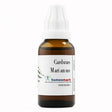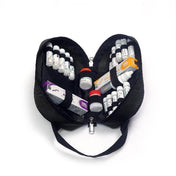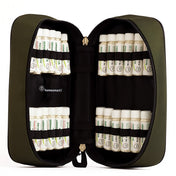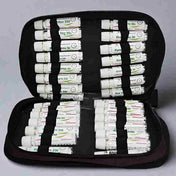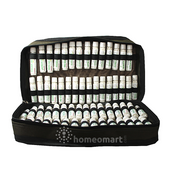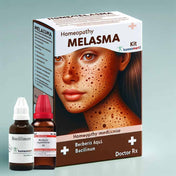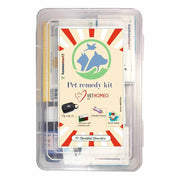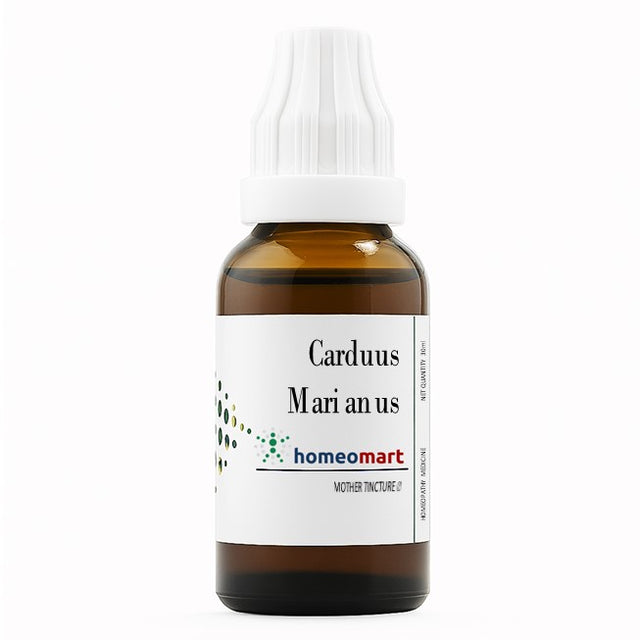Carduus Marianus (Milk Thistle) Homeopathy Mother Tincture Q
Carduus Marianus (Milk Thistle) Homeopathy Mother Tincture Q - Homeomart / 30ml is backordered and will ship as soon as it is back in stock.
Couldn't load pickup availability
Description
Description
Homeopathy Carduus Marianus Mother Tincture Q
Carduus Marianus also known as Silybum Marianus. This medicine is prepared from seeds of a plant known as St. Mary’s Thistle. This plant belongs to family compositae. The main action of this remedy is centred around the liver and portal system. Dropsical conditions depending on liver diseases and from pelvic congestion. Haemorrhages in connection with hepatic diseases.
What is Carduus marianus?
Carduus marianus is a Homoeopathic Dilution made fromSt. Mary's Thistle. It is reported to be useful in bronchitis, dropsy, epistaxis, haemorrhoids, jaundice, neuralgia, pleurisy, rheumatism, etc.
What are uses/benefits of Carduus marianus?
This remedy has been found of useful for the liver, and portal system, abuse of alcoholic beverages, especially beer, varicose veins and ulcers, diseases of miners, associated with asthma. Dropsical conditions depending on liver disease, and when due to pelvic congestion and hepatic disease.
How to use Carduus marianus?
It is to be taken as an internal medicine. Please note that the dosage of single homoeopathic medicines varies from drug to drug depending upon the condition, age, sensitivity and other things. In some cases they are given as regular doses as 3-5 drops 2-3 times a day whereas in other cases they are given only once a week, month or even in a longer period. We strongly recommend that the medication should be taken as per the physician’s advice.
What are the side effects of Carduus marianus?
No known side effects reported.
What precautions to take before using Carduus marianus?
None.
How long should I take Carduus marianus?
Until the symptoms improve or as per the Physicians prescription.
Is Carduus marianus safe for children?
Yes.
Is it safe to use Carduus marianus during pregnancy?
Yes.
What doctors recommend Carduus Marianus for?
Dr Kirti Singh recommends for liver disease like jaundice, hepatitis, fatty liver, cirrhosis of liver, indigestion, gas (flatulence), loss of appetite . how to use : Carduus Marianus Q 20 drop 3 times a day with some water for 3 month
Dr Shashi Boricha recommends for fatigue, loss of appetite, abdominal pain, diarrhoea, vomiting, jaundice
Dr K S Gopi says milk thistle is known for years to be helpful to the liver, this herb has now been shown to be capable of protecting the liver during chemotherapy treatment. Research in America showed that leukaemia patients who took milk thistle had reduced liver toxicity and chemo side-effects. There is a little evidence that it has its own anti-cancer activity too.
Dr Vikas Sharma recommends Carduus Marianus for
- Liver Pain and Jaundice are present
- liver cirrhosis with dropsical conditions
- For Inflamed Gall Bladder
- jaundice in gall stones
- ascites (fluid build up in abdomen)
- enlarged liver,
- bleeding related to liver issues
Carduus Marianus therapeutic range of actions as per Boericke Materia Medica
The described drug primarily targets the liver and portal system, leading to symptoms like soreness, pain, and jaundice. It is notably effective in treating conditions arising from alcohol abuse, particularly beer, and is linked to vascular system issues, including varicose veins and ulcers. The drug is beneficial for miners experiencing asthma-related diseases and is effective in treating dropsical conditions linked to liver or pelvic congestion and hepatic diseases. It also impacts sugar metabolism and is used in cases of influenza affecting the liver, general debility, and haemorrhages associated with hepatic disease.
The recommended dosage form is tincture and lower potencies.
For stomach issues, it addresses symptoms like bitter taste, reduced appetite, persistent nausea, and vomiting of green, acrid fluid. It's used in treating gallbladder stones, liver enlargement, and stitching pain near the spleen.
In abdominal conditions, the drug relieves liver soreness and sensitivity, alternating constipation and diarrhea, bright yellow stools, and inflammation and dropsy due to hepatic disorders.
For rectal ailments, it treats bleeding piles, rectal prolapse, burning pains, and difficulties due to hard, knotty stools and diarrhea caused by rectal malignancy.
In urinary issues, it helps with cloudy, bright yellowish-golden urine.
For skin conditions, it's used for nighttime itching, eruptions near the sternum, and varicose ulcers.
Dosage varies based on the condition, age, and individual sensitivity. It ranges from regular doses of 3-5 drops 2-3 times a day to once a week, month, or longer periods. However, it's strongly advised to follow a physician's specific dosage recommendations.

